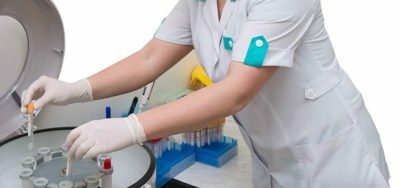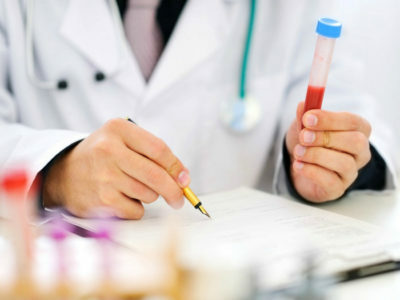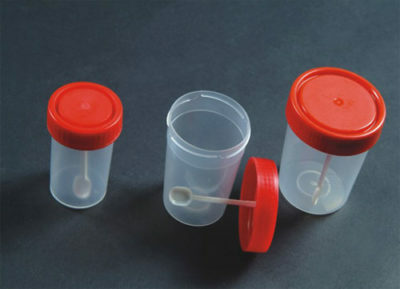1 The essence of the issue
CRP is a protein of the fast phase, which is produced by the liver as a reaction to the inflammatory process. C-reactive protein is found in serum, the amount of which depends on one or another disease.
CRP in biochemical analysis can increase several times and quite quickly, depending on the following factors:
- Inflammations.
- Bacterial and parasitic pathology.
- Appearance of neoplasms. Necrosis of tissues.
- Traumatic injury.
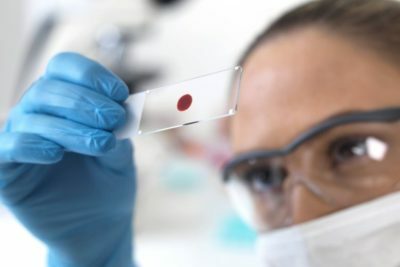
We recommend that you familiarize yourself with the
- The main biochemical parameters of the blood
- Decoding of the coagulogram in pregnancy
- What is the lipase and enzyme norm in the blood?
- Effective agent for gastritis and gastric ulcer
Protein synthesis begins to multiply repeatedly after 4-6 hours if tissue damage occurs. After 12-24 hours, the content of CRP in the blood rises significantly, and if you start treatment, the level will begin to decline after a few days. Complete normalization of the c-reactive protein occurs in a week, a maximum of 2 weeks.
The level of CRP in the blood will reach zero if there is a flow of the disease from acute to chronic phase. If again there is an exacerbation, the amount of protein will again begin to grow.
CRP in biochemical analysis is conducted in order to distinguish bacterial infection from the virus. At the latter, the amount of protein increases slightly, and when infected with bacteria - the concentration rises several times.
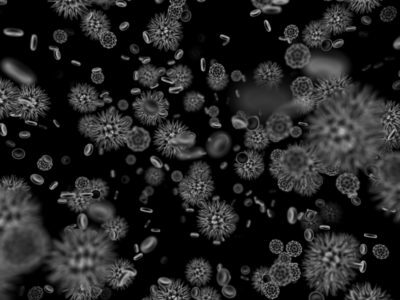
The reasons for the biochemical blood test can be a variety of factors, the main among which are the following:
- There is a need to prevent certain diseases in older people.
- Diagnosis of cardiac and vascular complications in patients suffering from diabetes mellitus, atherosclerosis, which passed into hemodialysis.
- For those who suffer from hypertension, ischemia, in time to prevent myocardial infarction, stroke.
- To determine if complications develop after cardiac bypass surgery.
- To assess the risk of recurrent myocardial infarction, avoid death after angioplasty, especially in those who have angina pectoris.
- It is necessary to check the effectiveness of the prevention and treatment of heart complications, which are performed with the help of statins and aspirins.
- Determine the effectiveness of treatment and reactivity of the process( collagenosis).
- Monitor the effectiveness of treatment for a bacterial infection, which may be meningitis and sepsis of newborns.
- Evaluate the effectiveness of chronic disease therapy.
- Detect infection in the body.
- If new growths occur in the body, then it is necessary to establish their nature and causes.
-
 IMPORTANT TO KNOW! Gastritis? Ulcer? To have a stomach ulcer not turned into cancer, drink a glass. ..Read the article & gt; & gt;
IMPORTANT TO KNOW! Gastritis? Ulcer? To have a stomach ulcer not turned into cancer, drink a glass. ..Read the article & gt; & gt;
2 Conducting the
study A biochemical blood test is performed using a blood sampling method from the peripheral vein, for which it is necessary to take approximately 10 ml of venous blood. When the fence has occurred, the blood enters the centrifuge to obtain plasma.
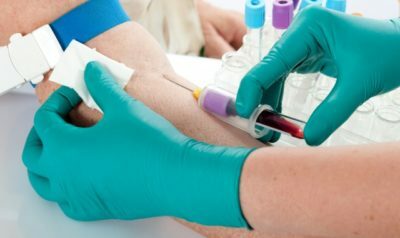
Special preparation for the analysis is not required, but several important recommendations must be adhered to:
- First, on the eve of the analysis, it is not necessary to dine too late. Food should not be high-calorie.
- Secondly, breakfast is not recommended in the morning, tk.blood surrenders on an empty stomach. You can drink a few sips of sweet tea.
- Third, you need to exclude the use of coffee and alcoholic beverages.
- Fourth, a few hours before the test, you can not supercool or overheat the body.
- Fifth, the analysis must be submitted in a calm state, so before taking blood, you need to sit for a while, do not be nervous.
-
 Gastroenterologist. VAZHENOV: "I beg you, if you started to worry about abdominal pain, heartburn, nausea, do not do gas in any way. .."Read more & gt; & gt;
Gastroenterologist. VAZHENOV: "I beg you, if you started to worry about abdominal pain, heartburn, nausea, do not do gas in any way. .."Read more & gt; & gt;
Usually the results of a laboratory test are ready by the end of the day when the blood was collected. Sometimes the examination is done faster, which is associated with the need to urgently establish the causes of a disease.
How is the decoding of the biochemical analysis? Norm for this test are considered indicators at 3 mg per 1 liter of blood. When the amount of c-reactive protein is higher, this indicates the presence of diseases in the body. The increase can be observed as several points / units, and several times, hundreds of units exceeding the norm.

3 Diagnostic methods
In some clinics a qualitative method for determining CRP is used, and then the number of pluses or minuses opposite the given protein is displayed in the form. With a large number of pluses, the doctor diagnoses the patient's development of active inflammatory processes.

In the case when the indices fluctuate between 3-10 mg / liter, this becomes the basis for the doctor to predict the possible development of such pathologies as a heart attack or atherosclerosis.
If the norm is exceeded several times, it means that the body has begun processes that signal the pathologies of the blood system, burn disease, trauma, purulent processes, tuberculosis, autoimmune diseases, arthrosis, myocardial infarction, sepsis, the presence of hepatitis, meningitis,inflammations of the lungs, infections of the digestive tract.
ADVICE FROM THE MAIN GASTROENTEROLOGIST
Korotov SV: "I can recommend only one remedy for the rapid treatment of Ulcer and Gastritis, which is now recommended by the Ministry of Health. .." Read testimonials & gt; & gt;
When decoding shows that the CRP in the biochemical analysis is only a few points higher than the norm, this indicates inflammatory processes in the inner wall of the vessels, development of hypertension, type 2 diabetes, etc. In healthy people, the result of this survey is usually negative.
4 Reasons for increasing the level of C-reactive protein
Among the regular causes - diseases, inflammations, infections and bacteria - the level of the liver protein can increase and under the influence of other factors. These include:
- The presence of implants and transplants in the human body. Excessive consumption of alcohol.
- Abuse of fatty foods on the eve of the test.
- The use of hormonal drugs.
- Pregnancy or toxicosis.
- Conducting operations.
- Presence of other pathologies.
Despite the availability of various methods for studying blood, biochemical analysis for the determination of c-reactive protein is the most informative and qualitative. The examination helps identify pathologies, inflammations or infections that can occur in the body of patients.
- 1 Subject matter
- 2 Conducting the
- 3 study Diagnostic methods
- 4 Reasons for increasing the level of C-reactive protein
CRP in biochemical blood analysis is conducted in order to distinguish bacterial pathology from a viral infection. Often in the human body, inflammatory processes occur, which each manifest in different ways. If this condition does not pass a long time, then it is necessary to establish the cause of the inflammation. Therefore, the doctor prescribes the surrender of a special analysis to the c-reactive protein, which helps confirm or disprove the presence of the inflammatory process in the human body.
Do you have gastritis?
GALINA SAVINA: "How easy is it to cure gastritis at home for 1 month. A proven method is to write down a recipe. ..!"Read more & gt; & gt;

